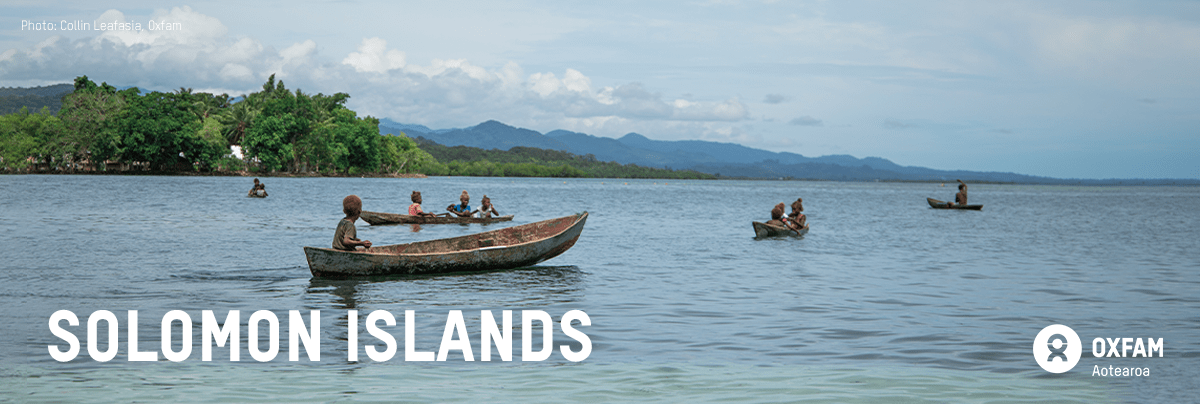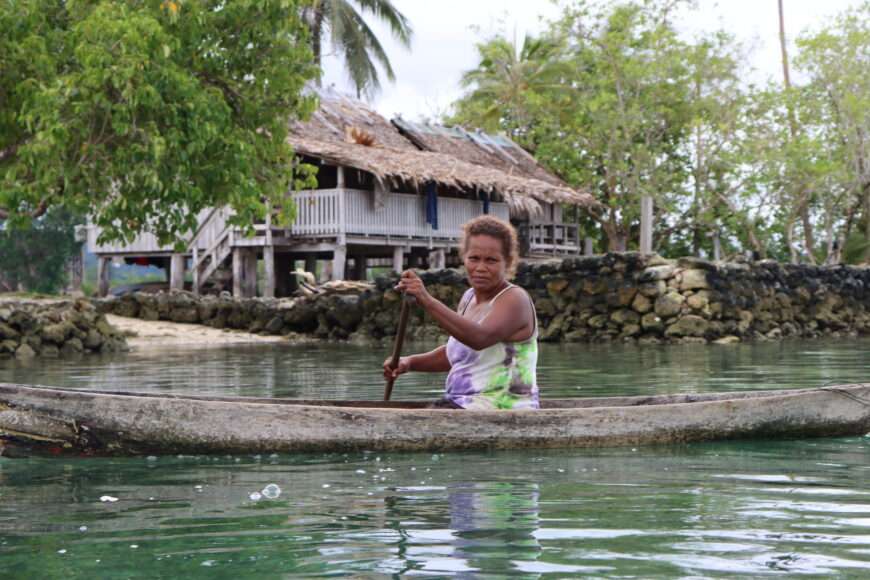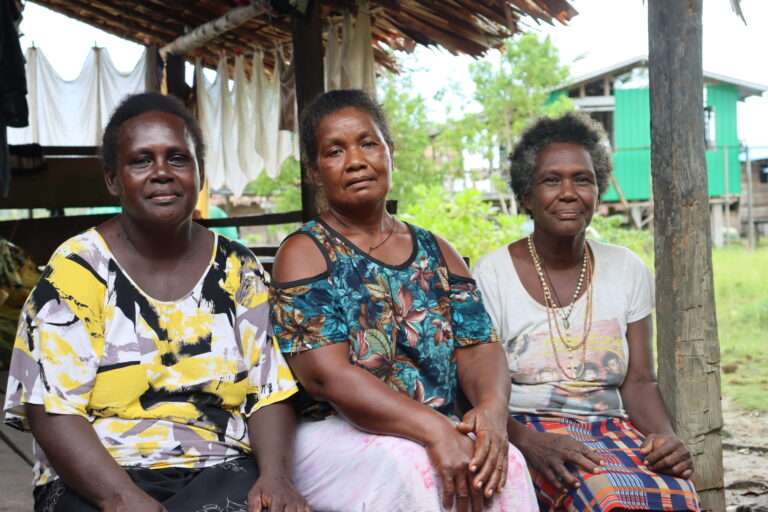
Solomon Islands is an archipelago of more than 900 islands in the South Pacific. The people in this country face significant challenges across the areas of climate resilience, gender equity and inclusive governance.
Recent research shows climate finance flows are increasing, but that does not necessarily mean that climate finance is adequate or that finance is translating into concrete benefits on the ground.
Women in Solomon Islands face a number of systemic and deep-rooted barriers to full participation, including heavily male-dominated decision-making systems and practices, reinforced by gender stereotypes that portray women as less able than men to lead or make decisions.
Women are often prevented from gaining leadership positions because of low levels of education, a high burden of family care responsibility, high levels of violence, and underlying discriminatory social norms. As a result, women’s voices and priorities are often absent or secondary in decision-making within the household, the community, provincial government plans and national policies.
Quick facts from the World Bank, UN Human Development Report, and UNICEF:
Capital of Solomon Islands: Honiara
Population: 800,005 (2023)
GDP per capita (USD): $2,041.6 (2023)
Human Development Index: 0.606, rank 141 (2021)
Language: English is the official language, but Solomon Islands pijin is the lingua franca. There are over 80 different local languages plus dialects.
Adult Literacy: 76.6 (2024)
Life expectancy: 71 years (2022)
Access to safe water: 67% (2021)
People living below the national poverty line: 26.6% (2012)

By supporting Oxfam You will:
-
Improve women’s access to climate finance
-
Ensure that there is greater transparency around how climate finance is used, especially in how it addresses the needs of women
Key Project

Climate Finance and Empowerment Project
This project seeks to ensure that climate finance decision-makers factor in the needs of women in Solomon Islands.
Decision making around climate finance must be inclusive, equitable, and transparent, so that all people have the power to influence the decisions that impact them.





